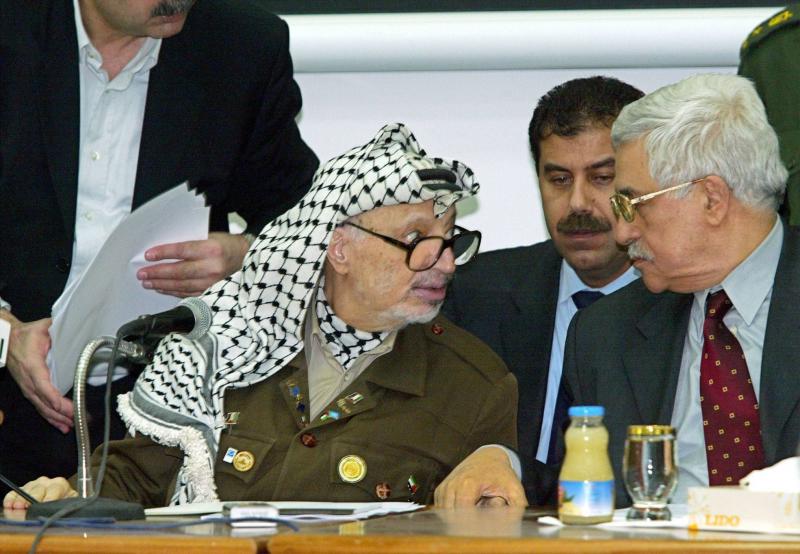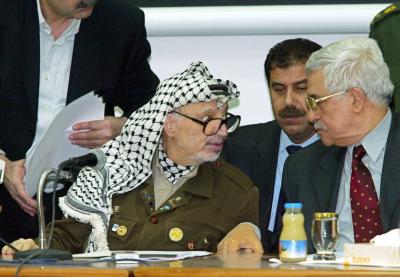I recall the first government that Mahmoud Abbas was tasked with forming during the late Yasser Arafat's tenure, who reluctantly accepted the idea and secretly intended to undermine it, and he did so within a time frame of no more than four months. The concept of a government independent of Arafat arose from a misjudged estimate, assuming that the revolutionary leader was unsuitable for leading a difficult settlement, and that a man who wears a keffiyeh and never parts with a gun at his waist, who did not remove his war attire for even an hour, would not be able to adapt to scenarios for a settlement that seemed too small for him and for his culture and aspirations.
When the architects of the settlement studied Arafat's situation and the deep-rootedness of his status, influence, and effectiveness in the Palestinian context, they decided to separate the responsibilities of the authority from the broader tasks handled by the Palestine Liberation Organization (PLO). As a first step, responsibilities were divided between the head of the organization, who retained all his titles, and the prime minister, who would undertake the administrative tasks with his ministers.
From the early days of this experience, it became clear that it would not succeed, and the exit from it was concocted by Yasser Arafat, to keep the government and its head as a facade for the world while remaining under his absolute control, which lasted until his death. Since the government that came after Abbas's resignation, the prime minister turned into a compliant employee of the higher president, retaining all the ceremonial practices labeled as constitutional to disguise the government and through which it could wear the robe of legitimacy.
Abbas inherited not only the presidency of the authority and the organization from his predecessor Arafat but also the nature of the relationship between him, as president, and the prime minister he appoints, who he can affirm or dismiss at his decision. President Abbas has never forgotten the bitterness of the suffering he endured when the world decided to take away "even a mere piece of Arafat's powers and give it to him." Although he was the second man in the hierarchy of the organization and the second in the historically revered frame of "Fateh," in addition to his significant role in managing the Oslo experience, Abbas knew that a president is ineffective if there is a prime minister with real powers beside him. Thus, he followed Arafat's lead in dealing with the prime minister, who, no matter how skilled and competent, would remain burdened by the specter of dismissal at any time without constitutional safeguards to protect him.
Abbas formed several governments by decree, and if it appeared that a prime minister had exceeded his authority, his dismissal would cost no more than the ink used to write it. Dr. Mohammed Mustafa, tasked with forming a government after the calls for reform in the authority, led by the American voice, possesses two main qualifications. The first, and most important, is that he has the trust of Abbas, which has been tested wherever the man has gone. The second is his professional qualification as he is the best qualified in the economic field compared to the figures of the authority and the organization. However, these two qualifications might be more of a burden to him than an advantage, as he cannot present himself as a reformist leader, given that he is, in fact, an extension of his president.
The man has distanced himself significantly from political and media displays, unlike his predecessors who engaged with media daily, sometimes multiple times a day. A man like this deserves sympathy, as he has been tasked with a highly complex political mission under a very superficial technical title, and has been moved from the shadows to the glaring light, tasked with four responsibilities, any of which could grind mountains, and cause the strongest state officials to fail—not only in Palestine, which remains without a state, but at the level of major global powers!
He was tasked with unifying the country... Gaza and the West Bank, after 18 years of others' failure. He was assigned the administration of relief operations in Gaza, where he is prohibited from appearing. He was tasked with leading a reconstruction process whose starting point and funding remain unknown, with expert estimates suggesting it could reach $90 billion. He was also tasked with reforming the authority's institutions after many years of neglect, poverty, and weakened infrastructure due to the prioritization of factional loyalty.
Since the formation of the first Palestinian government, how coincidental that its head was Mahmoud Abbas, and now he approaches the formation of the 19th government in the absence of a parliament that grants or withdraws confidence, interrogates, and holds accountable. Any government born in such circumstances, whether supported or hesitated to be supported by the Americans or by all those deeply involved in Palestinian and Middle Eastern affairs, will have the final assessment come from the Palestinians first, who are living in a catastrophic situation in Gaza and a similar one, albeit different, in the West Bank.
These Palestinians who have endured 18 previous governments and have tolerated a political class that continues to divide, isolate, and fail, are the only ones who can grant the government a certificate of success or failure. All that we discuss in terms of warnings is merely derived conclusions from the difficulty of reality and the results of past experiences and the hard present. Whether we like it or not, the government will have its opportunity, and we will not need much time to know what it has achieved and what it has failed to accomplish.




